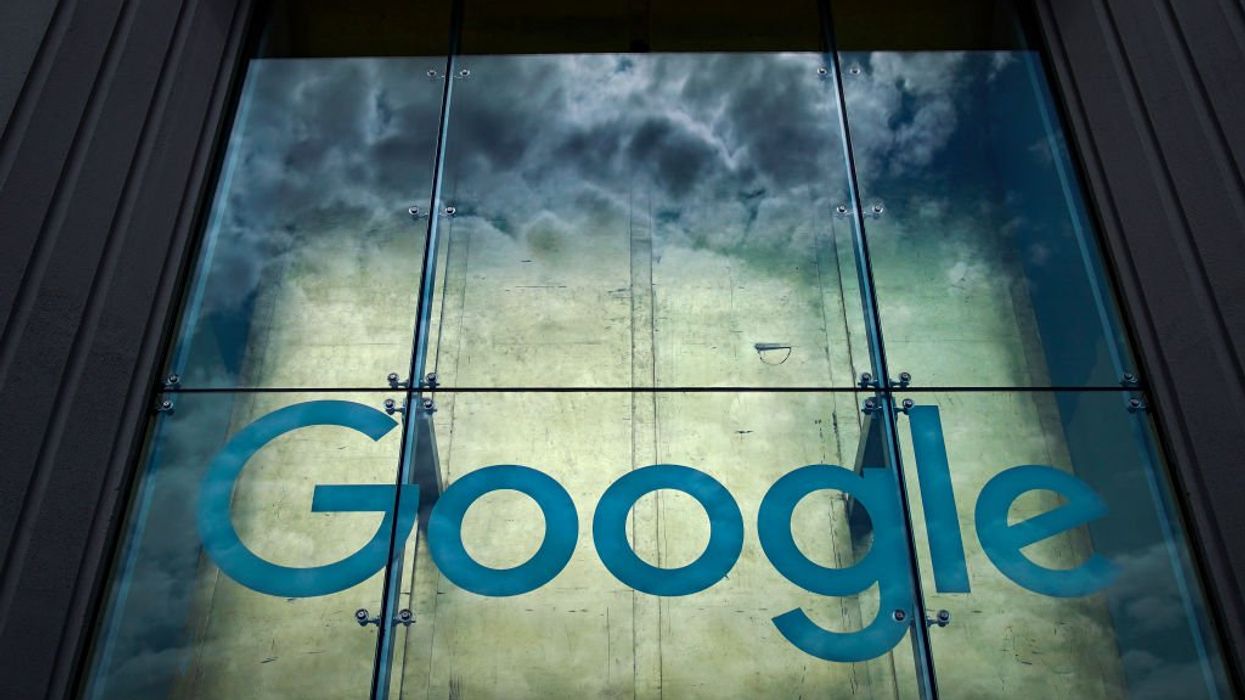
Drew Angerer/Getty Images

Google has established itself as the arbiter of "truth" in the digital age. The company controls the flow of information and can amplify or bury stories on a whim. Its leaders have given themselves god-like powers over shaping human opinion. So when they change their rules over what information they can censor in a "Sensitive Event" scenario, it's worth examining closely.
If you’ve ever advertised with Google, you might have received this email yesterday:
Dear Advertiser,
In February 2024, Google will update the Inappropriate content policy to clarify the definition of Sensitive Events.
A "Sensitive Event" is an unforeseen event or development that creates significant risk to Google's ability to provide high quality, relevant information and ground truth, and reduce insensitive or exploitative content in prominent and monetized features. During a Sensitive Event, we may take a variety of actions to address these risks.
Examples of Sensitive Events include events with significant social, cultural, or political impact, such as civil emergencies, natural disasters, public health emergencies, terrorism and related activities, conflict, or mass acts of violence.
Examples of what we prohibit (non-exhaustive):
•Products or services that exploit, dismiss, or condone the Sensitive Event, including price gouging or artificially inflating prices that prohibits/restricts access to vital supplies; sale of products or services which may be insufficient for the demand during a sensitive event
•Using keywords related to a sensitive event to attempt to drive additional traffic
•Claims that victims of a sensitive event were responsible for their own tragedy or similar instances of victim blaming; claims that victims of a sensitive event are not deserving of remedy or support; claims that victims from certain countries were responsible or deserving of a global public health crisis
What does this mean? Google — quite reasonably — doesn’t want to sell ads about certain things. If you peruse Google’s inappropriate content policy, you’ll see a long list of things advertisers tend to shy away from: animal cruelty, derogatory content, sexually explicit content, and then the oddly specific “hacked political materials.”
Likewise, the Sensitive Event rule is — at least on the surface — quite reasonable, because Google doesn’t want to be seen as profiting from a tragedy.
As far as I can tell, the Sensitive Event policy has not changed appreciably since 2021. In April 2019, it was limited to “Content that may be deemed as capitalizing on or lacking reasonable sensitivity towards a natural disaster, conflict, death, or other tragic event.”
In September 2020, the policy was expanded in response to COVID: “Content that potentially capitalizes on or lacks reasonable sensitivity towards a natural disaster, conflict, death, public health emergency, or other tragic event.”
By October 2021, it had been expanded to two full bullet points:
Ads that potentially profit from or exploit a sensitive event with significant social, cultural, or political impact, such as civil emergencies, natural disasters, public health emergencies, terrorism and related activities, conflict, or mass acts of violence
Ads that claim victims of a sensitive event were responsible for their own tragedy or similar instances of victim blaming; ads that claim victims of a sensitive event are not deserving of remedy or support
And that’s the policy that exists today.
So what is actually changing in February? On the surface, there doesn’t seem to be any change, but let’s look closely.
In the current policy, Google doesn’t give a “dictionary definition” of what it considers a Sensitive Event. Instead, it defines a Sensitive Event by what’s specifically prohibited.
Under the new policy, Google is using a much broader interpretation of a Specific Event and even giving itself broad leeway to address those events:
A “Sensitive Event” is an unforeseen event or development that creates significant risk to Google's ability to provide high quality, relevant information and ground truth, and reduce insensitive or exploitative content in prominent and monetized features. During a Sensitive Event, we may take a variety of actions to address these risks.
It then uses the old definitions as examples of what constitutes Sensitive Events:
Examples of Sensitive Events include events with significant social, cultural, or political impact, such as civil emergencies, natural disasters, public health emergencies, terrorism and related activities, conflict, or mass acts of violence.
Do you see the difference? Under the existing rule, an ad capitalizing on a natural disaster is specifically banned. Under the new rule, an ad capitalizing on a natural disaster is merely an example of what is banned, and what is actually banned is left to Google’s own interpretation.
Specifically, "an unforeseen event or development that creates significant risk to Google's ability to provide high quality, relevant information and ground truth …”
In other words, Google is creating a broader policy to “reduce insensitive or exploitative content in prominent and monetized features” for content that doesn’t match Google’s definition of “ground truth.”
What can we take away from this seemingly minor rule change? My read is that Google foresees an unknown event that the company wants to have the ability to restrict the flow of information around.
In plain English, Google doesn’t know what’s coming exactly, but it might be something previously unconsidered by Google’s lawyers, and Google wants to be able to restrict what information is presented about that event.
Google's leaders have given themselves the power to censor any event for really any reason. This is exactly why Blaze Media decided to move to a subscriber model. We can't allow Google, through the power of its platform, to dictate what stories we can and can't cover. If you haven't signed up yet, please consider supporting Blaze so we won't have to get permission from Google to cover certain stories. You can subscribe here.
- YouTube youtu.be
Josh Centers